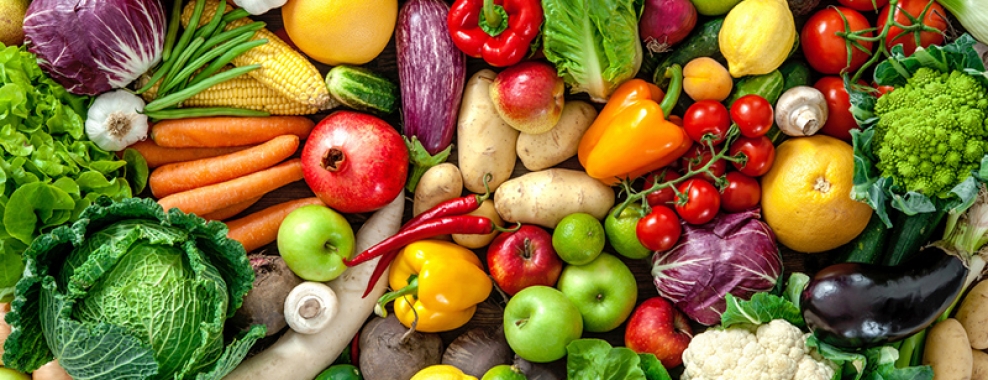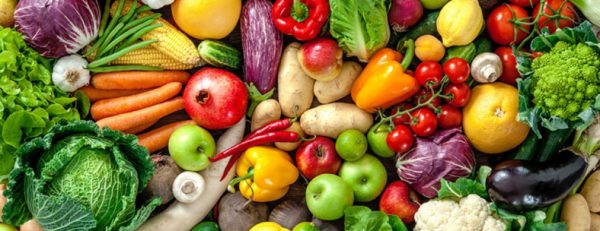
09 Jul Live Longer: Organic or Otherwise, Eat Lots of Fruits & Veggies
This summer, the Telluride Ski Resort and The Peaks Resort & Spa in Mountain Village are hosting week-long wellness intensives titled Live Longer Retreat. The Big Idea is to support your annual resolution to get really healthy and therefore live longer well. Half the year is in the rear view mirror. What progress have you made?
With an evidence-based, scientific approach to health and longevity and featuring an experienced staff of medical professionals, personal trainers, Pilates and yoga instructors, dietitians, and chefs, all focused on your unique wellness profile, each Live Longer Retreat is one-of-kind in the U.S.
The intensives, limited to only 10 – 15 participants, include personal consultations, hiking, spinning, yoga, Pilates, talks and demonstrations related to nutrition, cooking classes, and more.
Dates this debut summer/fall season are August 19 – August 25 and September 27 – September 30.
The program is led by Dr. Alan Safdi, a world-renowned internist and gastroenterologist with encyclopedic knowledge of mind-body wellness and preventative medicine. Dr. Safdi also has a gift for delivering evidence-based medical findings for healthier living in easily digestible sound bytes.
In the run-up to the retreats, Dr. Safdi is posting regular updates on Telluride Inside… and Out based on the latest, closely vetted research about subjects in the field of health, wellness and longevity.
This week, Dr. Safdi talks about organic foods. Are they really healthier? Or is the point to eat a diet rich in fruits and veggies, organic or otherwise.
Feel free to sign up now to participate in a Live Longer Retreat – or call 1-877-448-5416 for further information.

Asking which organic foods to buy should be an easy question to answer, but it is not.
In fact, as a doctor immersed in the studies, my answer is bound to change over time based on your personal circumstances, governmental regulations and testing methodologies.
Sugar and bad fats can be “organic” and are one of the chief causes of obesity and illness.
What’s more, organic does not necessarily mean clean and people on organic and conventional diets are at about the same risk of food poisoning as people who eat whatever comes off the shelf. Adequate cleaning of foods, organic or otherwise, is extremely important.
Seventy-four percent of Americans say they want to eat foods that have not been aggressively treated with pesticides, but organic does not necessarily mean pesticide-free either.
That said, organic farmers must work with a much shorter list of substances for pest control, insecticidal soap, pheromones for disrupting mating, copper sulfate, among them. And, though organic produce does contains significantly less pesticide residue than conventionally grown foods, I advise my patients to keep eating lots of fruits and veggies, organic or otherwise. The health benefits of these food categories are well established and, in my opinion, massively outweigh any risk from residues – or skipping them altogether.
Further, there are no long-term studies of health outcomes among patients who eat a predominantly organic diet versus those who regularly consume conventionally produced foods, and so the question of whether organic foods are really healthier is difficult to answer and depends on the study. Despite the widespread perception that organically produced foods are more nutritious than conventional alternatives, most studies did not find robust evidence to support that notion.
A few studies state that organic foods pack more nutrients than conventional foods, but many nutrient studies do not find clinically meaningful differences between organic and conventional foods in terms of levels in serum, urine, breast milk, or semen.
However, as stated above, it is definitely true that organic plants contain significantly less pesticide residue and that organic growing methods are generally safer for the environment and for farmers too. There is evidence suggesting a 30% higher risk for contamination with pesticide residues in conventional products compared to organic products.
And two studies report lower urinary pesticide levels among children on organic diets, while organic chicken and pork may reduce exposure to antibiotic-resistant bacteria. Plus, the feeding requirements for organic livestock farming, such as the primary use of grass and alfalfa for cattle, result in generally higher levels of omega-3 fatty acids, a kind of fat that is more heart healthy than other fats. Those higher omega-3 fatty acids are found in organic meats, dairy and eggs.
Organic certification requirements and farming practices vary widely. Below are a few examples:
1. Grown without synthetic pesticides or fertilizers
2. Processed without irradiation or chemical food additives
3. Not grown from genetically modified organisms
4. No antibiotics or growth hormones
5. Organically produced, pesticide-free animal feed
However, “natural” and “organic” are not interchangeable terms. In general, “natural” on a food label simply means the food has no artificial colors, flavors or preservatives. It does not refer to the methods or materials used to produce the ingredients.
Given everything I’ve said, I am now going to provide a list of foods I would always buy organic whenever possible:
• Dairy products. Remember milk will concentrate a lot of the pesticides and harmful products given to the cow. Certified organic dairy means the cows did not receive any antibiotics or growth hormones and only consumed 100 percent organic feed – although grass-fed may even be a little better.
• Meat from a cow, chicken or turkey. It is worth the money to buy the meat of animals not treated with hormones, antibiotics, and pesticides. The feed in a conventional cow, chicken, or turkey may contain herbicides, other additives, and synthetic fertilizers.
• Strawberries
• Spinach
• Apples
• Celery
• Tomatoes
• Grapes
• Hot peppers
• Kale
• Lettuce
• Nectarines
• Peaches
• White Potatoes
• Sweet Bell Peppers
• Cucumbers
• Pears
• Cherries
Please do not skip any of the fruits and vegetables on the above list, however, again, remember to wash them all very well.
Frozen organic fruits and veggies are fine and may save you some money.
The latest in a long line of papers on the many health benefits suggest reducing meat intake is good for your body and for the planet and specifically that a plant-based diet is great news for your heart.
In fact, a diet full of healthy fruits and vegetables reduces heart disease death risk by 40%. Risk of death from cardiovascular disease is reduced by 40%. Blocked arteries were unblocked partially or fully in as many as 91% of patients. Hypertension risk drops by 34%.
Also, total cholesterol and low-density lipoprotein, or “bad,” cholesterol levels are much lower in vegetarians compared with non-vegetarians.
Moreover, a plant-based diet was shown to be associated with weight loss.
If you are unable to buy organic fruits and vegetables for some reason, as I doctor immersed in preventative medicine I would rather have you eat whatever fruits and veggies are available at your market rather than skip these extremely important components of any healthy diet.


Sorry, the comment form is closed at this time.